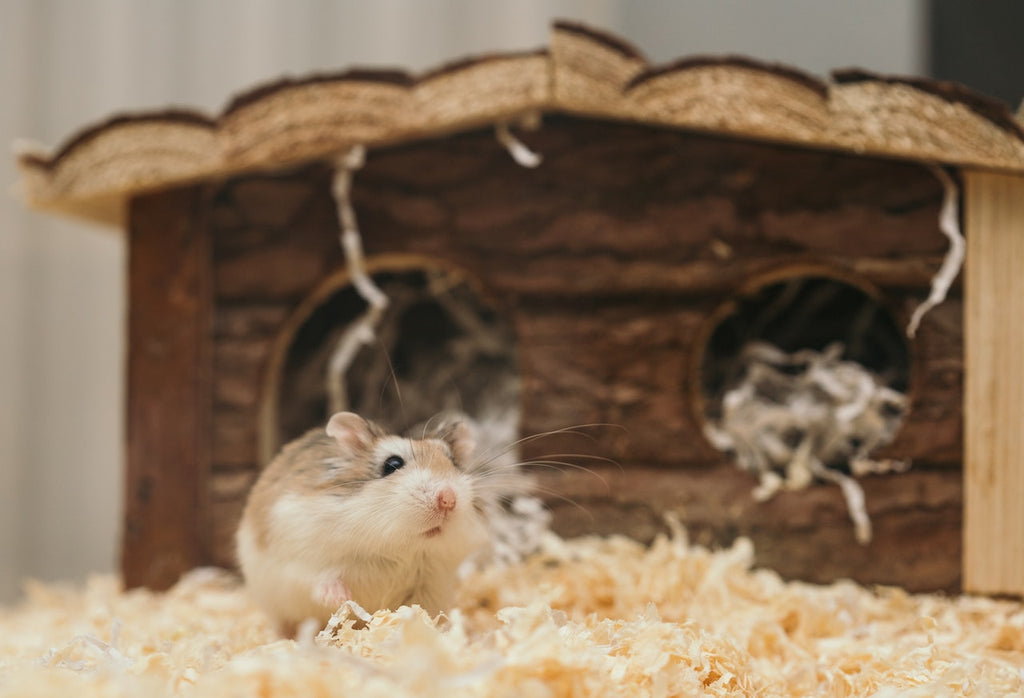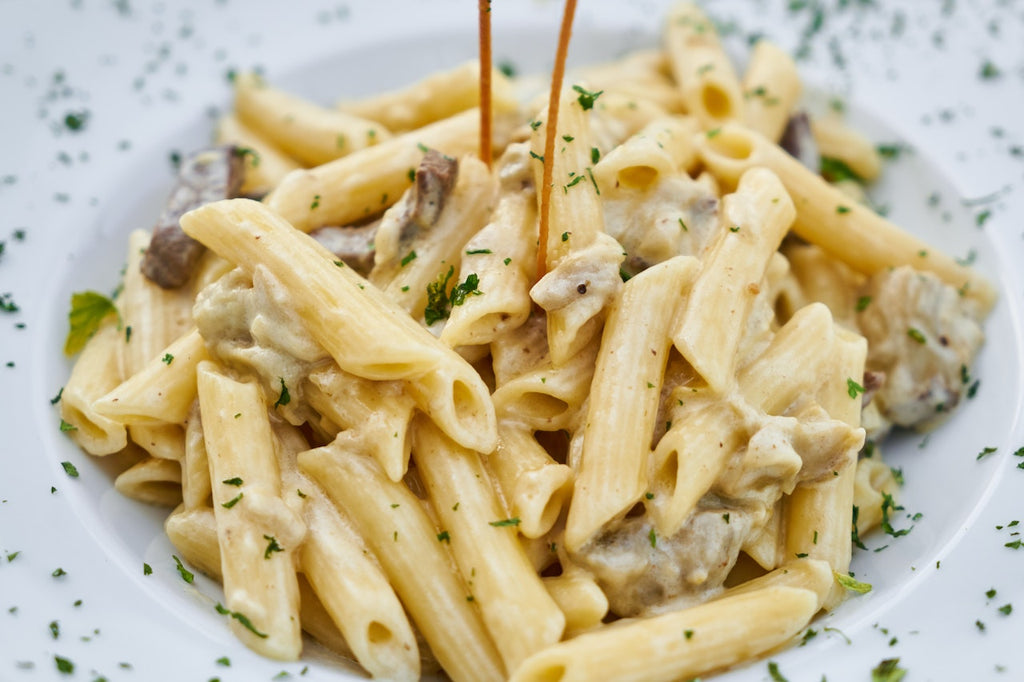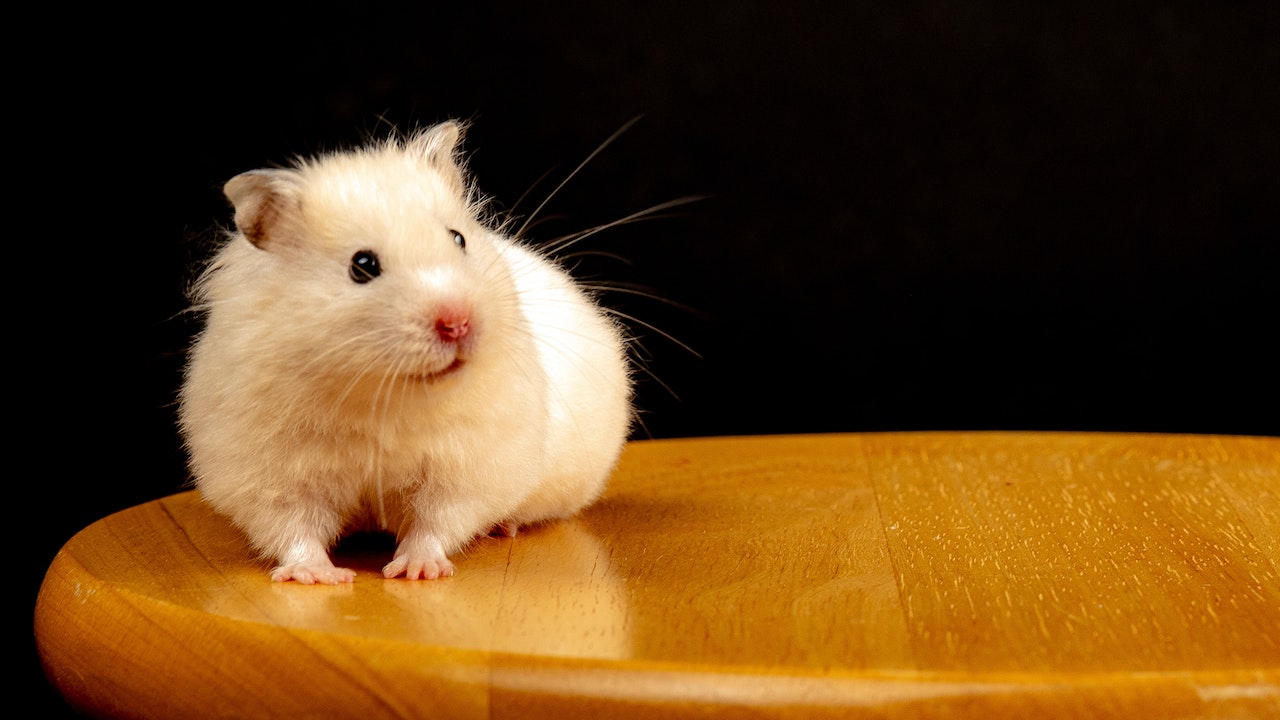
Can Hamsters Eat Pasta? An in-Depth Look at a Hamster's Diet
When considering whether or not to give your hamster pasta, you must evaluate the nutritional content and understand how their digestive system processes carbohydrates and grains. Primarily, your hamster's diet should consist of hamster pellets, along with some vegetables, fruits, and occasional treats.
This article will explore what types of pasta hamsters can eat, how much they should be given, and other key factors to keep in mind for your hamster's wellbeing and longevity.
Can Hamsters Safely Consume Pasta?
Yes, pasta can be part of a hamster's diet. However, due to its high carbohydrate and low nutritional content, pasta should only make up a small portion of your hamster's regular diet.
Only provide your hamster with plain pasta. Avoid any sauces, spices or add-ins. Cooked whole grain or vegetable-based pasta are better options. Always supervise your hamster to ensure the pasta is properly chewed.

Can Hamsters Eat Uncooked Pasta?
No, raw or uncooked pasta poses a choking hazard to hamsters so it is better not to feed it to them.
The hard, dry pieces of uncooked pasta can prove to be difficult for a hamster to properly chew and digest. There is a high risk of the pasta causing an intestinal blockage or other digestive issues. For your hamster's safety and well-being, do not feed them uncooked pasta.
Can Hamsters Safely Eat Cooked Pasta?
Yes, as hamsters are omnivorous animals, they can consume a variety of foods, including cooked pasta in moderation. However, there are several factors to consider regarding a hamster’s nutritional requirements and digestive system before offering pasta.
Hamsters require a balanced diet to remain healthy and energetic. As obligate herbivores, their natural diet consists primarily of seeds, grains, vegetables, and occasional fruit. While hamsters can gain a lot of nutrients from certain cooked grains and vegetables, cooked pasta doesn't really offer much in comparison.
Are there Nutritional Benefits to Feeding a Hamster Pasta?
Pasta is not nutritionally ideal for hamsters and should only be given in moderation. The carbohydrate and calorie density of most types of pasta are too high for a hamster's small size. Frequent or large portions of pasta could possibly make your hammy obese among other health issues.
You may consider incorporating a small amount of cooked pasta into your hamster's regular diet. Pasta can provide carbohydrates, a source of energy, as well as certain minerals. However, pasta lacks protein and many vitamins, so it should only make up a minor part of a balanced hamster diet.
Tips for Choosing Healthy Treats and Foods for Your Hamster
When choosing treats and foods for your hamster, opt for healthy, natural options.
Avoid foods with an excessive amount of sugar, fat or salt. Focus on fresh fruits and vegetables, limited portions of complex carbohydrates and lean proteins. Things like broccoli, carrots, spinach and cucumber are excellent options. For protein, a small amount of cooked egg or chicken is fine. Whole grains like oats or barley in moderation are better than highly processed white pasta.
Dietary Needs
The average hamster requires a diet high in protein, fiber, and certain vitamins and minerals to remain healthy. While small amounts of carbohydrates from sources like cooked pasta can be part of a balanced diet, hamster owners must ensure their pet receives proper nutrition from food specifically formulated for hamsters to avoid malnutrition or obesity. Pasta lacks many of the nutrients hamsters need and should only make up a very small portion of their daily diet.
Risks of Feeding Hamster Pasta
- Uncooked pasta pieces could potentially cause your hamster to choke, especially if eaten too quickly.
- Hamsters have small mouths and digestive systems, so large amounts of starchy, high-carb foods like most pastas may be difficult for them to properly digest. This could lead to gastrointestinal upset, diarrhea, or other issues if pasta is a large part of their diet.
- Also, pasta does not contain much nutrients so feeding them to your hamster exclusively can lead to nutrient deficiency.
Key points in Feeding a Hamster Pasta
When feeding hamsters pasta, there are some key points to consider:
Amount and Frequency
Only provide hamsters pasta in strict moderation, no more than once a week. Limit portions to no more than 1-2 tablespoons for dwarf hamsters and 2-3 tablespoons for Syrian hamsters. Excess pasta can lead to nutritional deficiencies, obesity, and other health issues in hamsters if fed too frequently or in large amounts.
Cook Pasta Thoroughly and Let it Cool
Pasta must be cooked until very soft and cooled completely before serving to a hamster. Al dente or undercooked pasta can be a choking hazard. You can follow the directions on the package and cook accordingly. Allow to cool for at least 30 minutes before offering to your hamster.
Avoid Seasoning or Sauces
Only plain pasta with no added salt, spices, garlic, onion or sauces should be given. These additions can upset a hamster's stomach or be toxic. Stick to basic pasta shapes like elbow macaroni, penne or rotini.
Provide Fresh, Clean Water
Always have a full water bottle available for your hamster, especially when giving treats like pasta. Fresh, filtered water helps ensure proper hydration and digestion. Replace your hamster's water bottle at least once per week.
Supervise Feeding
When offering cooked pasta, supervise your hamster to ensure they do not choke. Never leave uneaten pasta in the cage, as it can spoil and attract pests. Remove any uneaten pieces after a few hours.
Conclusion
A hamster's diet requires a careful balance of nutrients to keep these little creatures healthy and happy. While hamsters can eat certain types of pasta in moderation, their diet should consist primarily of high-quality hamster pellets, along with limited portions of vegetables, fruits, and the occasional treat.
Always do thorough research on the nutritional requirements of hamsters and any human food before offering it to your pet. By following these guidelines and keeping your hamster's best interests in mind, you'll be well on your way to providing your little friend with a long, joyful life.


